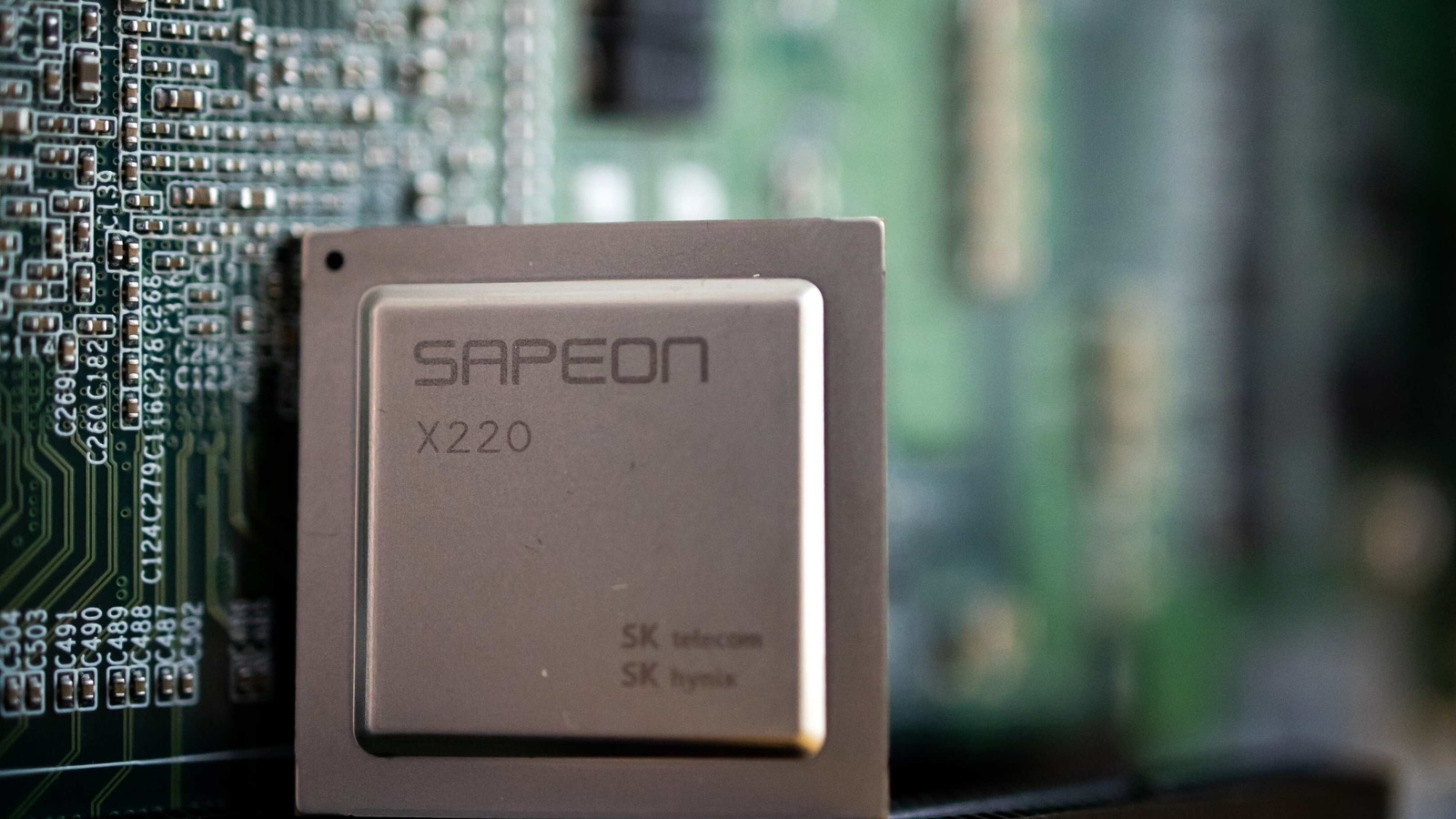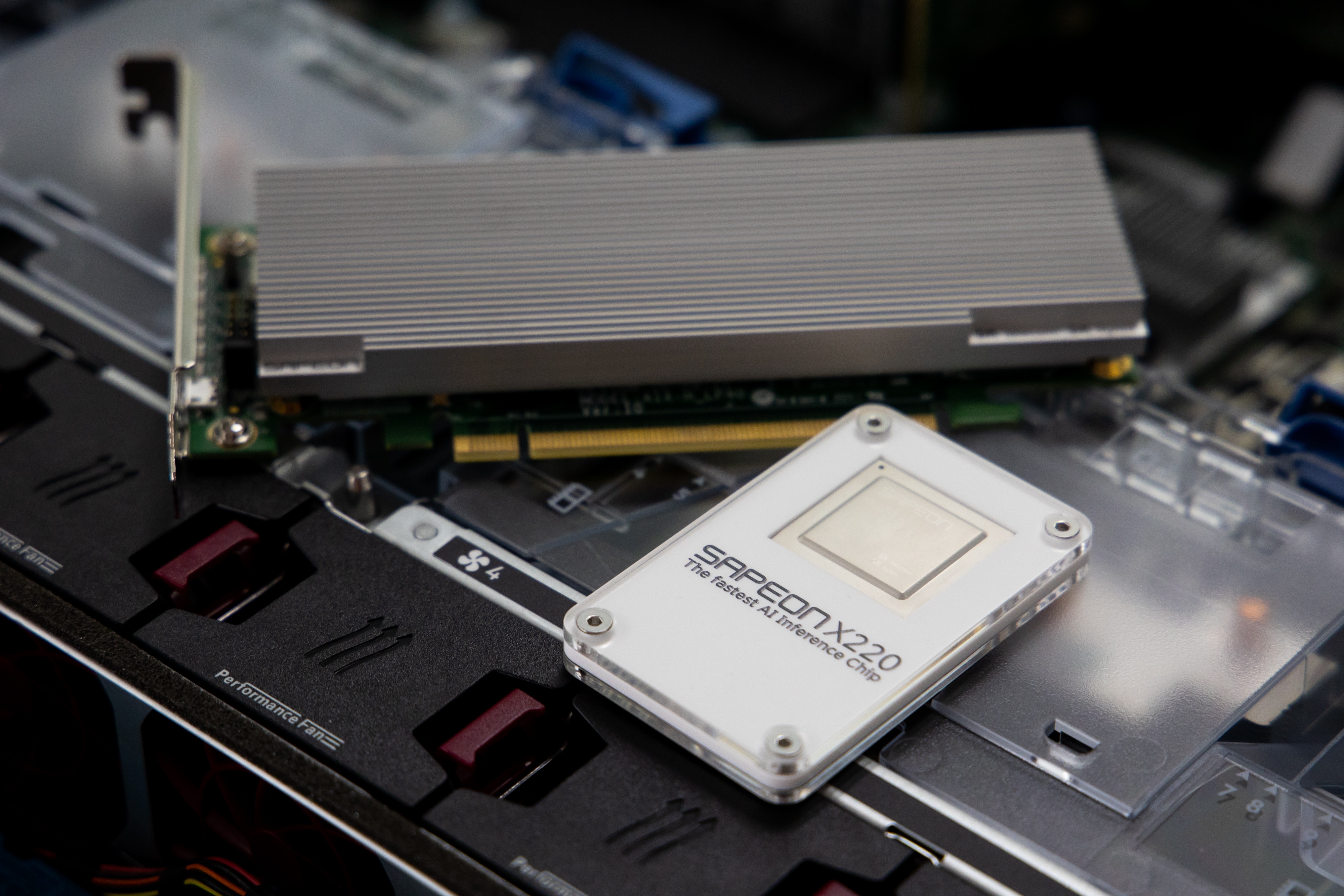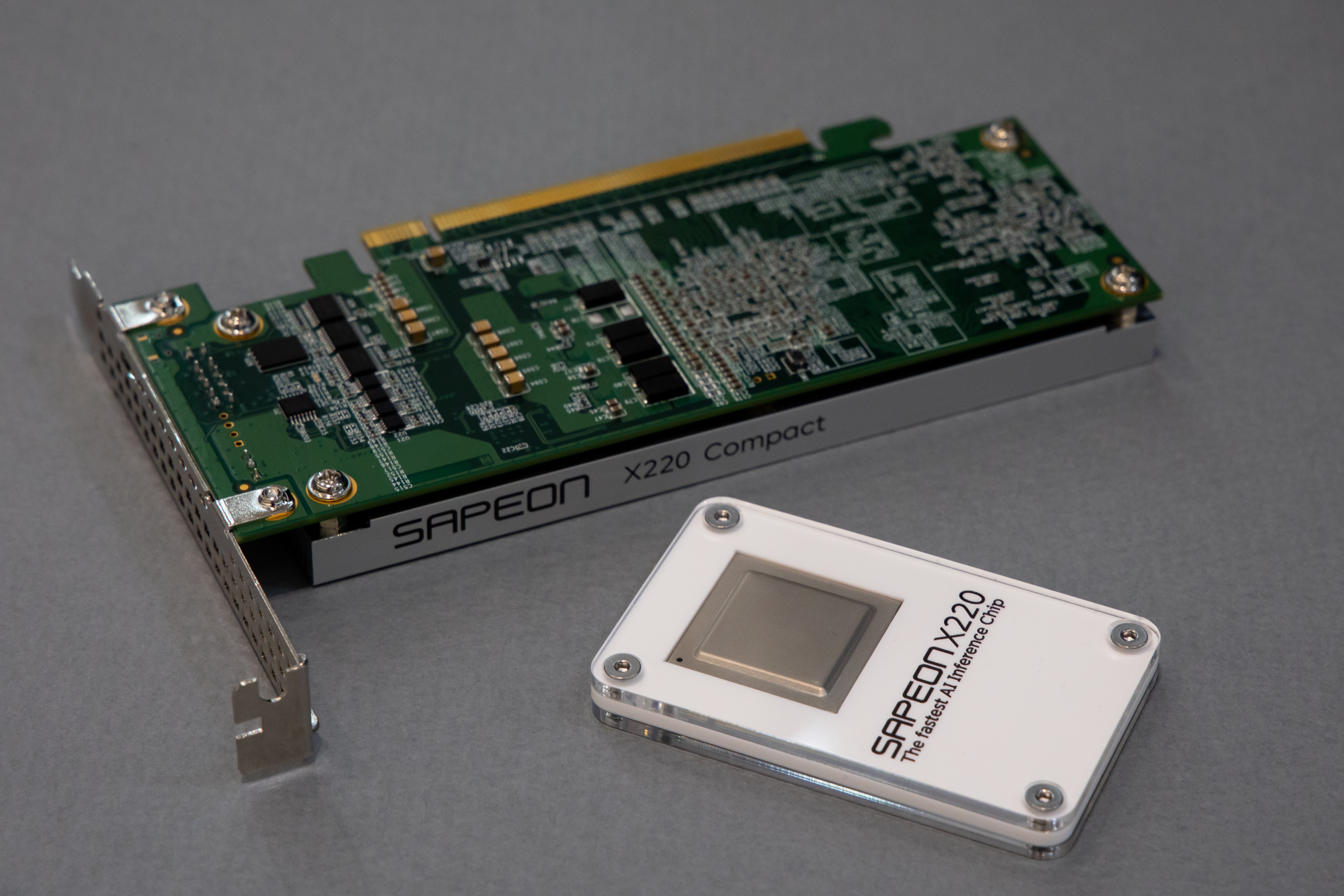South Korea unveils AI chip to maintain semiconductor leadership
South Korea is adding a new artificial intelligence chip to its arsenal of semiconductors as the nation seeks a bigger slice of the global tech market and an upgrade of its industrial capabilities.

The Sapeon X220, unveiled Wednesday by the largest local carrier SK Telecom Co., is designed to speed up servers that cater to a growing number of mobile devices -- from drones to self-driving vehicles -- that perform better with AI. It's the latest product of the nation's decade-long push to broaden its dominance beyond memory chips, where Samsung Electronics Co. and SK Hynix Inc. control roughly two-thirds of the global market.
South Korea sees data-processing chips as a major engine for future economic growth, along with fifth-generation wireless networks. The government has provided more than 600 billion won ($542 million) in support to develop such chips and plans to invest another trillion won over the next decade, viewing them as crucial in automating factories and improving the competitiveness of the country's exports.
ALSO READ: Microsoft teams up with chipmakers to boost PC security
“As we teamed up with the government, we said, ‘Let's make AI available and affordable for all of our companies,'” said Lee Jong-min, an SK Telecom vice president overseeing the chip development. “South Korea has the demand, the full stack of tech needed to meet the demand, and the ability to take it to the next level.”


Semiconductors account for about one-fifth of South Korea's exports, most of them memory chips. The country is now turning to application-specific integrated circuits, or ASICs, such as the X220, which is tailored for AI operations. It follows a similar $1 billion investment plan announced by the U.S. government this summer, which also emphasized AI and public-private collaboration.
ALSO READ: NXP, Amazon partner to connect cars to cloud computing services
As the first country in the world to roll out commercial 5G last year, South Korea believes it also can lead in adopting and optimizing AI by virtue of the nation's compact size, wide broadband coverage and smartphone penetration.
Competition is heating up in the AI semiconductor space, with the likes of Amazon.com Inc. and Alphabet Inc.'s Google investing in their own bespoke server silicon. As more devices than ever come online, companies are betting they can unlock value and insights from the resulting trove of data through machine learning and analysis at scale.
Like SK Telecom, U.S. competitors offer such cloud services to other companies, and the investment in designing the chips makes sense when factoring in the cost of electricity and the chips' ability to handle greater volumes of data more efficiently.


SK Telecom's chip, the size of a postage stamp, is the first Korean ASIC for data centers to be commercialized, according to the company. It represents the latest push by the Seoul-based carrier to expand beyond its traditional mobile and broadband businesses and keep up in an era of AI-driven innovation.
The global AI chip market is currently led by Nvidia Corp., a graphics-card giant whose market value has eclipsed that of Intel Corp., the company historically most associated with semiconductor breakthroughs. Demand for Nvidia's GPUs has spiked in recent years, as the perennially increasing demands of high-resolution video games have been joined by a boom in cryptocurrency mining and other data-intensive applications that benefit from massively parallel processing. Even smartphone processors from the likes of Apple Inc. and Huawei Technologies Co. now come with dedicated cores for handling AI tasks, and the need for more ASICs like the Sapeon X220 is forecast to rise as artificial intelligence gains more ground in global technology.
By Sam Kim
Catch all the Latest Tech News, Mobile News, Laptop News, Gaming news, Wearables News , How To News, also keep up with us on Whatsapp channel,Twitter, Facebook, Google News, and Instagram. For our latest videos, subscribe to our YouTube channel.






























